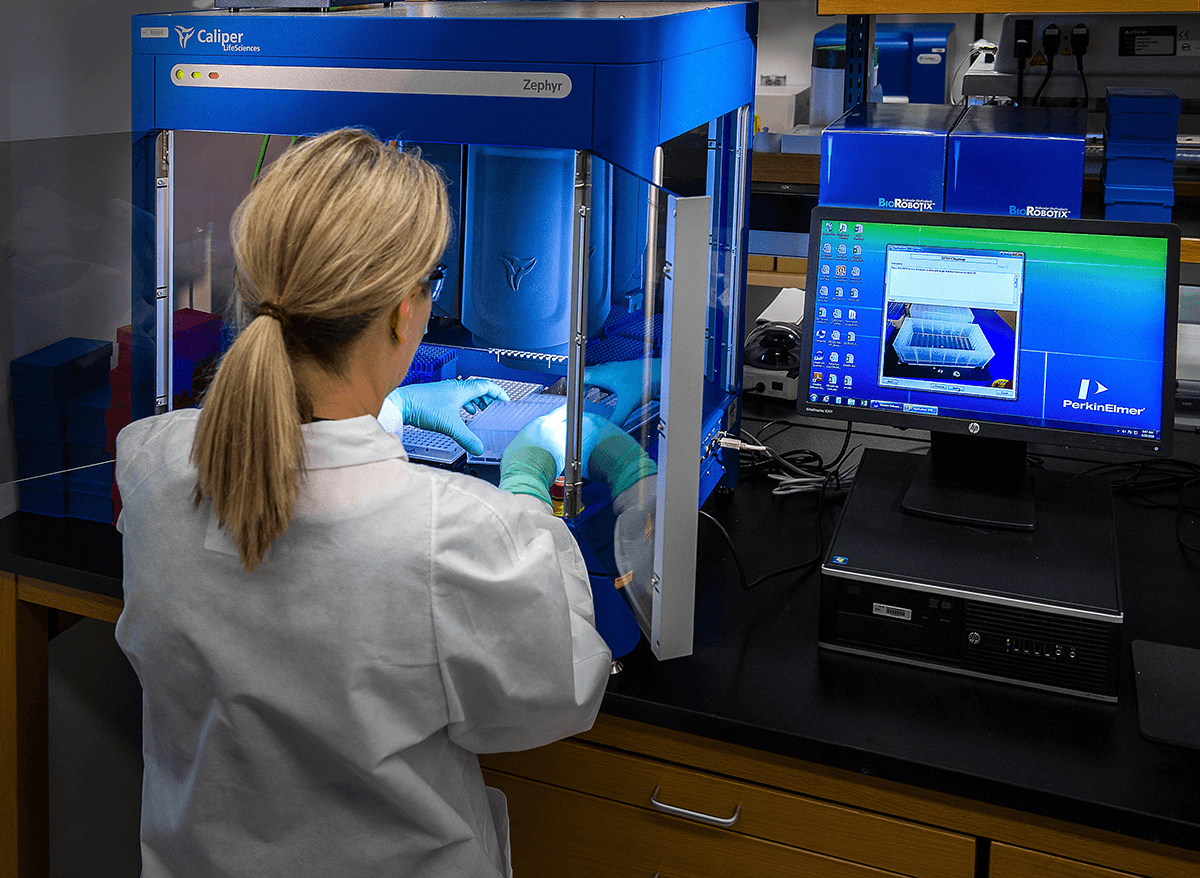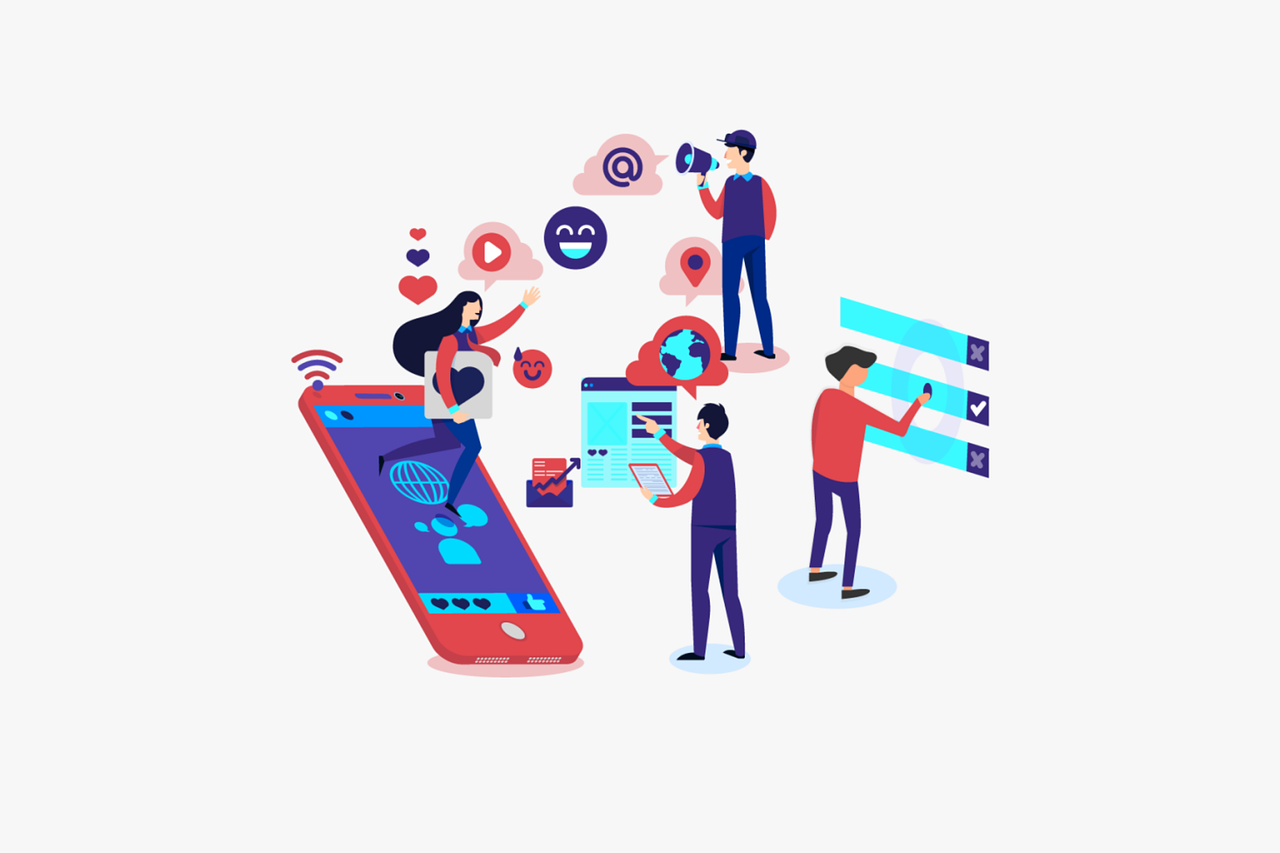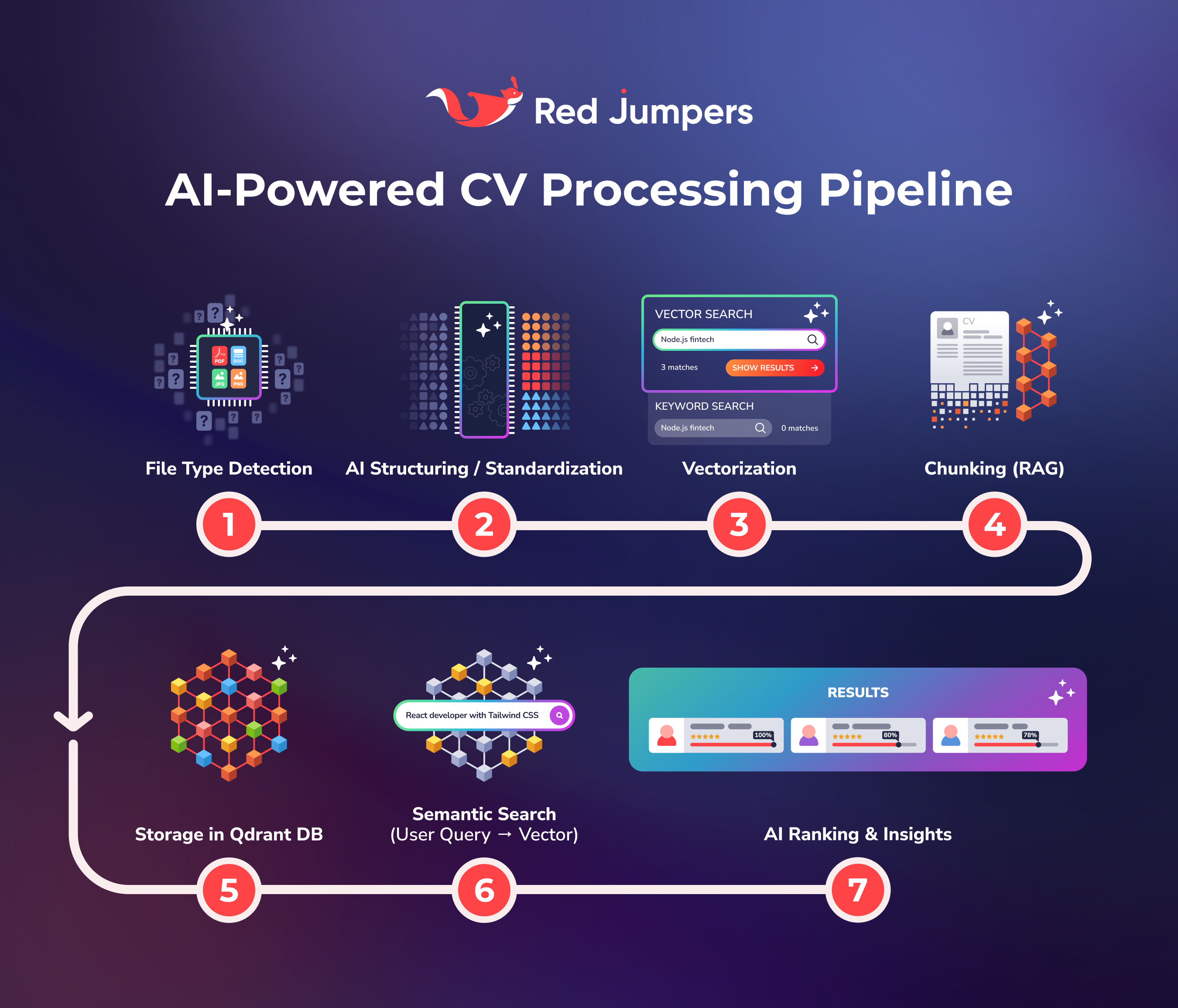The evolution of healthcare software has revolutionized the healthcare industry, ushering in a new era of efficiency and patient-centric care. By alleviating physicians from cumbersome administrative tasks, these software solutions empower them to dedicate more time to providing quality patient care. From enhancing healthcare records to optimizing prescription management, digital health and technological innovations have not only streamlined processes but also facilitated seamless access to healthcare services when needed.
In this article, we delve into the transformative landscape of healthcare software development – defining it, exploring types, key technologies, the development process, costs, and how Red Jumpers aids in hiring.
Let’s dive right in.
- What is Healthcare Software Development?
- Types of Healthcare Software
- Key Healthcare Software Development Technologies
- Healthcare Software Development Process
- Cost of Software Development in the Healthcare Industry
- Healthcare Software Security Standards and Certifications
- How Red Jumpers can help you hire the best healthcare software development company?
- Conclusions
What is Healthcare Software Development?
At its core, healthcare software simplifies and manages daily interactions among patients, medical professionals, and administrators. These platforms excel in enhancing care quality, ensuring privacy, and maintaining accurate records across various healthcare settings. The development of healthcare software creates an ecosystem that elevates the quality and precision of healthcare services.
Types of Healthcare Software
Let’s take a look at various healthcare software types for healthcare providers.
- Patient Monitoring Apps
These apps enable healthcare professionals to consistently monitor patients’ health and take prompt actions during their treatment. Patients can conveniently store test reports and documents for doctors’ easy access.
- Laboratory Information Management Systems (LIMS)
LIMS enhances precision in laboratory settings by overseeing samples, gathering data, automating workflows, and seamlessly integrating instruments into the environment for more accurate results.
- Medical Networking Platforms
While physicians may be pressed for time on social media, they still need a dedicated platform to connect with colleagues, share knowledge, and enhance decision-making skills. Medical networking apps exemplify this need in healthcare custom software development.
- Telehealth Services
Telehealth empowers medical professionals to schedule appointments and provide consultations through video calls or quick chats.
- Health Record Apps
Medical record apps allow easy collection and maintenance of patients’ electronic health records (EHR), including appointments, prescriptions, tests, medical history, and vital indicators. This real-time information is crucial for physicians to monitor the overall treatment process closely.
- Radiology Information Systems (RIS)
This medical imaging software effectively tracks patients and their images, manages appointment scheduling, reports results, and handles invoicing. RIS systems significantly elevate the quality and speed of patient care and diagnosis in radiology departments.
- E-Prescription Platforms
E-prescription apps facilitate the generation and sending of prescription orders directly to pharmacies and labs, enhancing patient safety and accuracy through advanced healthcare software development services.
- Hospital Management Software
Streamlining the entire management and billing process, this software digitizes tasks such as insurance assignment, payment processing, claims management, patient information, and administrative work. This optimization improves staff efficiency and ensures desired outcomes.
- Pharmacy Management Systems
These systems ensure the smooth operation of a pharmacy by managing expired drugs, streamlining stock re-ordering, sending SMS reminders to patients, and securely storing and backing up customer data, among other beneficial processes.
Key Healthcare Software Development Technologies
Staying abreast of the latest trends is paramount to delivering innovative solutions and contributing to the advancement of medical delivery.
Embracing technologies such as AI, machine learning, and blockchain empowers firms to meet the evolving needs of healthcare organizations, enhance patient care outcomes, and secure a robust position in the competitive healthcare software market.
AI (Artificial Intelligence)
AI is propelling healthcare software developers forward, providing capabilities such as medical imaging analysis, clinical decision support, and Natural Language Processing (NLP).
In medical imaging analysis, AI algorithms enhance accuracy by identifying patterns and anomalies, aiding radiologists in diagnosing conditions swiftly and precisely. Clinical decision support systems analyze patient data and medical literature to provide evidence-based recommendations. NLP enables computers to understand and interpret human language, facilitating tasks like transcribing medical dictation and extracting information from clinical notes.
Machine Learning
A subset of AI, machine learning is a game-changer for healthcare software development companies, focusing on enabling systems to learn from data and make decisions without explicit programming.
Predictive analytics identify patterns and make predictions, aiding in early intervention and optimizing treatment plans. Personalized medicine tailors interventions to individual patient characteristics, predicting patient demand, streamlining resource allocation, and optimizing scheduling processes.
Blockchain
Blockchain’s secure and transparent data management makes it a standout in healthcare software development.
Certifying secure and tamper-proof storage and exchange of healthcare data, blockchain ensures data security, privacy, interoperability, and health information exchange. Incorporating blockchain eliminates intermediaries, reduces administrative complexities, and ensures the integrity of health information sharing across systems and providers.
Healthcare Software Development Process
Healthcare software development requires a well-defined approach to ensure a successful outcome. Here’s the breakdown of the process you should rely on:
Step 1: Define your requirements
Start by determining the specific healthcare software you need. Create a comprehensive business case outlining your goals for the software, whether it’s reducing billing lag, setting up virtual care for outpatient monitoring, or digitizing medical records.
Step 2: Ensure regulatory compliance
Understand the regulatory landscape (more on this below), especially if your application involves collecting and sharing personal patient data. Compliance with regulations is crucial, particularly for solutions handling payment processing, which must adhere to PCI DSS standards for credit card data protection.
Step 3: Choose a reliable development partner
Select an experienced development team with a diverse healthcare portfolio and a proven track record. Look for expertise in healthcare regulations, data exchange standards, and robust security practices.
| Learn how to hire the best remote tech partners for your next project from our guide. |
Step 4: Plan & Design
Collaborate with your chosen development team to create a detailed software specification, incorporating functional, operational, and accessibility requirements. Develop a comprehensive plan that considers regulatory requirements and includes risk mitigation strategies. Design user journeys and finalize the software’s look and feel through wireframes.
Step 5: Development & Integrations
Proceed with iterative development cycles, focusing on high-priority features to create a minimum viable product (MVP). Implement necessary integrations and security measures during this stage.
Step 6: Testing & Pre-Launch
Thoroughly test all deliverables for performance, usability, and integration. Conduct penetration testing to ensure security, and perform a compliance audit to confirm adherence to regulations. Prepare compliance documentation outlining data processing practices.
Step 7: Launch & Evolve
Deploy the solution into the production environment, making adjustments as needed. Your IT support team continues to optimize performance, troubleshoot, and introduce new features as the software evolves.

Cost of Software Development in the Healthcare Industry
If you’re considering healthcare software development, anticipate costs ranging from approximately $200,000 for outsourcing to $388,000 or more for in-house development.
These figures may vary based on a number of factors such as:
- Type of collaboration (An in-house team offers close collaboration, outsourcing to a team of software engineers can provide quality work at lower costs)
- Team composition (The size, experience, and skills of your development team)
- Project complexity (The type of software or medical website you want to develop, along with design complexity and desired features)
- Development timeline (More complex software requires more time and incurs higher expenses)
- Team location (In outsourcing, the cost may vary based on the region)
Healthcare Software Security Standards and Certifications
Ensuring the security of healthcare software is paramount, and adherence to recognized standards and certifications is integral to achieving this goal. Here are some key healthcare software security standards and certifications:
- Health Insurance Portability and Accountability Act (HIPAA)
HIPAA sets the standard for protecting sensitive patient data. Compliance is mandatory for healthcare providers and organizations handling patient information.
- ISO (International Organization for Standardization) 27001
ISO 27001 certification demonstrates a commitment to safeguarding information assets.
- Health Information Trust Alliance (HITRUST)
HITRUST provides a comprehensive framework that harmonizes various standards, including HIPAA and ISO, to manage and secure healthcare information.
- National Institute of Standards and Technology (NIST) Framework
NIST offers a cybersecurity framework providing guidance on managing and reducing cybersecurity risk, applicable to healthcare software development.
- Clinical Laboratory Improvement Amendments (CLIA)
For healthcare software dealing with clinical laboratory data, CLIA certification ensures compliance with quality standards.
How Red Jumpers can help you hire the best healthcare software development company?

Red Jumpers excels in fostering collaboration among IT companies. Our extensive network comprises over 700 reliable outsourcing and outstaffing partners. Before any collaboration, we meticulously screen each partner, assessing their reputation through independent platforms and a robust rating system.
If you need a reliable agency to develop your healthcare software solution, don’t hesitate to reach out to us.
Conclusions
Healthcare software development stands at the forefront of transformative advancements, enhancing patient care, streamlining operations, and fostering innovation in the medical industry. Finding a reliable partner is imperative for the successful development of software that not only adds business value but also prioritizes the well-being of patients.




